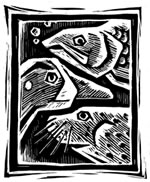- Home
- Restoration Projects
- Project Search
- Sea Otter Demographics and Habitat 93043-2
Project Information
Title: Sea Otter Demographics and Habitat 93043-2
Project Year and Number: 1993: 93043-2
Other Fiscal Years and Numbers for this Project: 1993: 93043
Principal Investigator (PI): Jim Bodkin (US Geological Survey)
Managing Agency: USGS
Assisting Personnel: Mark Udevitz
Research Location: Prince William Sound
Restoration Category: Monitoring
Injured Resources Addressed: Sea Otters
Abstract: Immediate sea otter losses associated with the EVOS probably ranged from 3,000 to 5,000 animals. Sampling of sediments and sea otter prey items indicates that the exposure of otters to petroleum hydrocarbons may be continuing, affecting the survival and therefore the recovery of the population. As a continuation of work conducted in 1991 and 1992, this project will conduct population surveys of sea otters in the Prince William Sound using aerial surveying. Due to the identification of bias resulting in the boat surveys, aerial survey method began to be developed in 1991. A Global Positioning System (GPS) was used in the aircraft to locate the endpoints of each transect. Concentric circles within the width of the survey transect were flown, and data was collected. Continued survey development includes the investigation of two methods for increasing the sample size of intensive search units. Prince William Sound will be partitioned into 400 km-wide strip transects divided into 2 strata, feeding and non-feeding habitat. Data collected using aerial survey will be entered into a database. Mortality patterns will be evaluated through the recovery of sea otter carcasses surveyed on beaches in Prince William Sound. A Leslie matrix model for males and females will be constructed to model the sea otter population to predict recovery. Habitat use patterns will be analyzed.Proposal: Not Available
Reports:
Final Report: View (1,563 KB)
Publications from this Project: None Available
